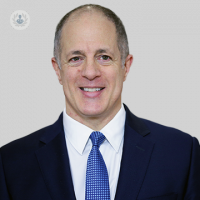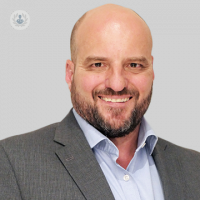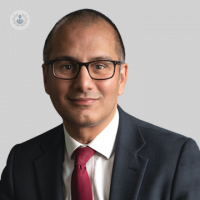What is lymphoedema?
Lymphoedema is a chronic condition characterised by swelling in the tissues of the body along with fluid retention, as the body is unable to drain lymph fluid. The most commonly affected areas are the legs and arms, though it can occur anywhere in the body.

What are the symptoms of lymphoedema?
The symptoms of lymphoedema include:
- Swelling in part, or all, of the arm or leg
- Discomfort
- Aching
- Thickening of the skin, or hardening of the skin (also called fibrosis)
- Difficulty moving, or feeling restricted
- Skin infections which are reoccurring
- Fluid coming through the skin
- A heavy feeling in the leg, arm, or area affected
What causes lymphoedema?
Lymphoedema is caused by a problem in the lymphatic system, which is part of the immune system and helps to drain excess fluid from tissues, and fight infection. When a blockage occurs, or the lymph nodes become damaged, this can lead to lymphoedema.
Lymphoedema can be caused by faulty genes (primary lymphoedema), which in turn mean the lymphatic system does not develop as it should. It can also be caused by damage to the lymphatic system (secondary lymphoedema), for example through injury, infection, inactivity, or inflammation.
How can lymphoedema be prevented?
Lymphoedema cannot be fully prevented, but there are certain lifestyle measures which can be taken to reduce the risk. Leading a healthy lifestyle is the best way to prevent the condition, meaning a healthy weight should be maintained, exercise should be taken regularly, and a healthy balanced diet is essential.
What is the treatment for lymphoedema?
There is currently no cure for lymphoedema, but it can be managed and the symptoms can be adequately controlled to improve quality of life. Treatment attempts to minimise the build-up of fluid in the affected area and help to stimulate the fluid through the lymphatic system. Some ways of doing this are through compression clothing or garments, a healthy diet and exercise, lifestyle changes, and special massages to help drain and stimulate the affected area.
Some patients may also find that they need emotional or psychological help, as living with a long-term condition can be distressing and upsetting. Receiving the correct treatment and reaching out for support when it is needed is vital in the management of lymphoedema.
01-27-2017 08-04-2023Lymphoedema
Mr Ian Franklin - Vascular surgery
Created on: 01-27-2017
Updated on: 08-04-2023
Edited by: Conor Lynch
What is lymphoedema?
Lymphoedema is a chronic condition characterised by swelling in the tissues of the body along with fluid retention, as the body is unable to drain lymph fluid. The most commonly affected areas are the legs and arms, though it can occur anywhere in the body.

What are the symptoms of lymphoedema?
The symptoms of lymphoedema include:
- Swelling in part, or all, of the arm or leg
- Discomfort
- Aching
- Thickening of the skin, or hardening of the skin (also called fibrosis)
- Difficulty moving, or feeling restricted
- Skin infections which are reoccurring
- Fluid coming through the skin
- A heavy feeling in the leg, arm, or area affected
What causes lymphoedema?
Lymphoedema is caused by a problem in the lymphatic system, which is part of the immune system and helps to drain excess fluid from tissues, and fight infection. When a blockage occurs, or the lymph nodes become damaged, this can lead to lymphoedema.
Lymphoedema can be caused by faulty genes (primary lymphoedema), which in turn mean the lymphatic system does not develop as it should. It can also be caused by damage to the lymphatic system (secondary lymphoedema), for example through injury, infection, inactivity, or inflammation.
How can lymphoedema be prevented?
Lymphoedema cannot be fully prevented, but there are certain lifestyle measures which can be taken to reduce the risk. Leading a healthy lifestyle is the best way to prevent the condition, meaning a healthy weight should be maintained, exercise should be taken regularly, and a healthy balanced diet is essential.
What is the treatment for lymphoedema?
There is currently no cure for lymphoedema, but it can be managed and the symptoms can be adequately controlled to improve quality of life. Treatment attempts to minimise the build-up of fluid in the affected area and help to stimulate the fluid through the lymphatic system. Some ways of doing this are through compression clothing or garments, a healthy diet and exercise, lifestyle changes, and special massages to help drain and stimulate the affected area.
Some patients may also find that they need emotional or psychological help, as living with a long-term condition can be distressing and upsetting. Receiving the correct treatment and reaching out for support when it is needed is vital in the management of lymphoedema.


Lymphoedema surgery: A comprehensive guide
By Mr Deemesh Oudit
2024-12-14
Lymphoedema can cause swelling of the limbs, which in turn leads to significant discomfort and an increased risk of infection. Surgery is among the available options to alleviate these symptoms and improve patients' wellbeing. In this article, renowned consultant plastic surgeon Mr Deemesh Oudit explains what lymphoedema surgery entails, as well as the potential risks and success rates. See more
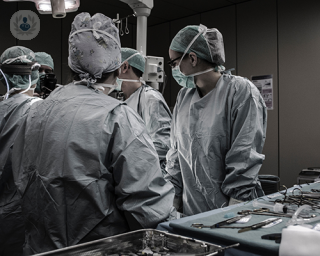

What is lymphoedema and how is it treated?
By Mr Damir Kosutic
2024-12-10
Lymphoedema is a condition characterised by the swelling of the limbs caused by fluid retention. Fluid retention occurs in patients with this condition because their lymphatic system is unable to properly drain the lymph fluid. In many cases, it is the legs, arms and fingers that become swollen. It can be a difficult condition to live with, as it can cause discomfort, pain and difficulty moving. Mr Damir Kosutic, a top plastic surgeon, details the treatments available for lymphoedema, which include surgery, liposuction, and combining it with breast reconstruction surgery. See more
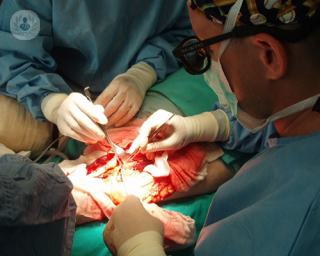

Improving the quality of life in those with lymphoedema
By Mr Damir Kosutic
2024-12-06
Lymphoedema is a chronic condition that can be debilitating to live with. It is characterised by the swelling and the collection of fluid in upper and lower limbs. It can result from previous cancer surgery in which lymph nodes were removed, commonly done when treating breast cancer, for example. Mr Damir Kosutic, a leading plastic surgeon, discusses how he is revolutionising breast cancer surgery in using techniques that treat and prevent lymphoedema. See more
Experts in Lymphoedema
-
Mr Ian Franklin
Vascular surgeryExpert in:
- Deep vein thrombosis (DVT)
- Leg ulcers
- Spider veins (thread veins)
- Varicose veins
- Lymphoedema
- Pelvic congestion syndrome
-
Mr Damir Kosutic
Plastic surgeryExpert in:
- DIEP breast reconstruction
- Lymphoedema
- Skin cancer
- Migraine
- Liposuction
- Tummy tuck (abdominoplasty)
-
Mr Gary Maytham
Vascular surgeryExpert in:
- Varicose veins
- Peripheral arterial disease
- Aortic aneurysms
- Carotid artery disease
- Diabetic foot
- Lymphoedema
-
Mr Aadil Khan
Plastic surgeryExpert in:
- Lymphoedema
- Breast augmentation
- Body contouring
- DIEP breast reconstruction
- Breast implant removal surgery
- Breast reduction
-
Mr Ruben Kannan
Plastic surgeryExpert in:
- Botulinum toxin (Botox™)
- Facelift
- Facial paralysis
- Lymphoedema
- Migraine
- Skin cancer
- See all

Beaumont Hospital - part of Circle Health Group
Beaumont Hospital - part of Circle Health Group
Old Hall Clough, Chorley New Rd, Lostock, BL6 4LA
No existe teléfono en el centro.
By using the telephone number provided by TOP DOCTORS, you automatically agree to let us use your phone number for statistical and commercial purposes. For further information, read our Privacy Policy
Top Doctors

Specialists in Plastic Surgery
Specialists in Plastic Surgery
5 Devonshire Place
No existe teléfono en el centro.
By using the telephone number provided by TOP DOCTORS, you automatically agree to let us use your phone number for statistical and commercial purposes. For further information, read our Privacy Policy
Top Doctors

My Cosmetic Clinic
My Cosmetic Clinic
77-79 Chapel St
No existe teléfono en el centro.
By using the telephone number provided by TOP DOCTORS, you automatically agree to let us use your phone number for statistical and commercial purposes. For further information, read our Privacy Policy
Top Doctors
-
Beaumont Hospital - part of Circle Health Group
Old Hall Clough, Chorley New Rd, Lostock, BL6 4LA, BoltonExpert in:
- Audiology
- General Surgery
- Orthopaedic surgery
- Dermatology
- Pain management
- Hernia
-
Specialists in Plastic Surgery
5 Devonshire Place, W1G Marylebone LondonExpert in:
- Abdominoplasty
- Blepharoplasty
- Breast augmentation
- Facelift
- Liposuction
- Breast reduction
-
My Cosmetic Clinic
77-79 Chapel St, SalfordExpert in:
- Abdominoplasty
- Blepharoplasty
- Breast augmentation
- Plastic surgery, reconstructive and aesthetics
- Facelift
- Gynaecomastia
- See all
- Most viewed diseases, medical tests, and treatments
- Facial feminisation surgery
- Migraine
- Joint pain
- Lumbar herniated disc
- Endovenous laser treatment (EVLA)
- Head and neck cancer
- Neck lump
- Acellular dermal matrix (ADM)
- Prepectoral breast reconstruction
- One Stop Breast Clinic
